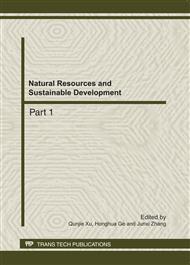p.1137
p.1143
p.1148
p.1153
p.1157
p.1166
p.1170
p.1177
p.1182
Game Theory Analyze for Urban Quasi-Public House Demolition — Based on the Comparative Stakeholders Theory
Abstract:
With the development of urbanization, house demolition in city is more and more, during which house demolition conflict emerges. This paper is based on the hypothesis of “comparative stakeholders”, on the background of quasi-public house demolition, to make game theory model about stakeholders of the government, house demolition executors, and the dismantled. As a result, to make a deep study on conflicts of interest among stakeholders, and make a conclusion that government administration and irrational factors play the key role during quasi-public house demolition.
Info:
Periodical:
Pages:
1157-1165
Citation:
Online since:
October 2011
Authors:
Price:
Сopyright:
© 2012 Trans Tech Publications Ltd. All Rights Reserved
Share:
Citation:


